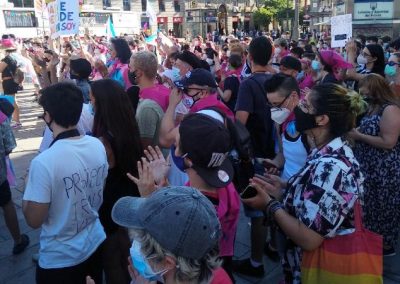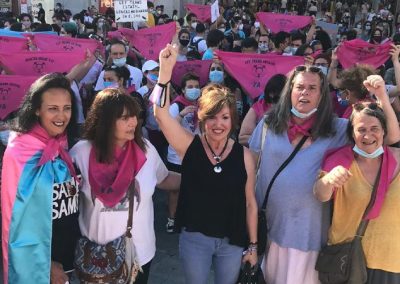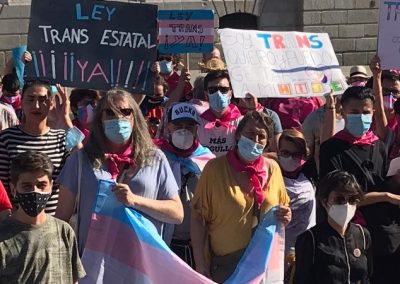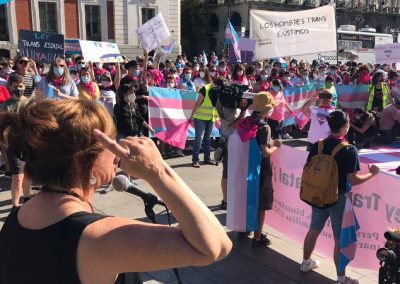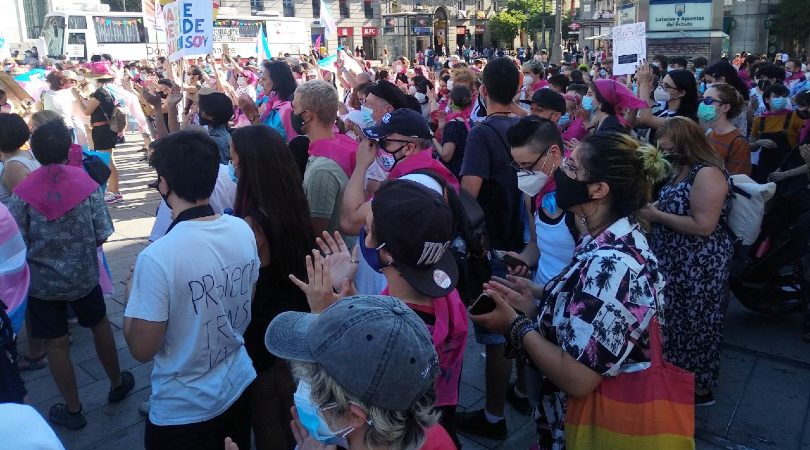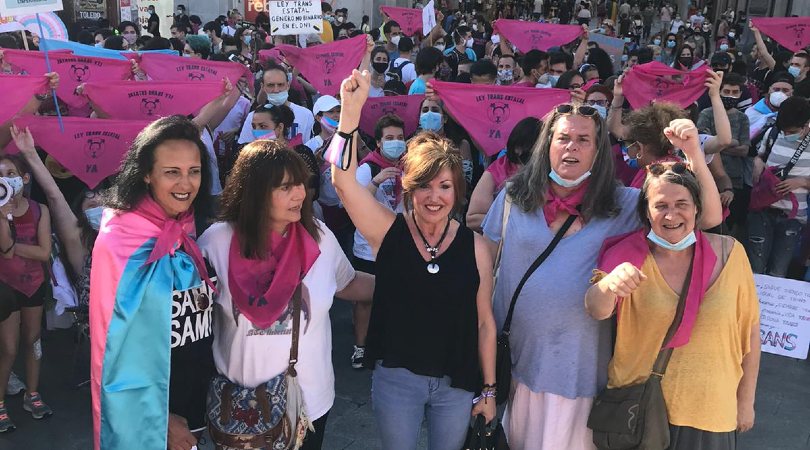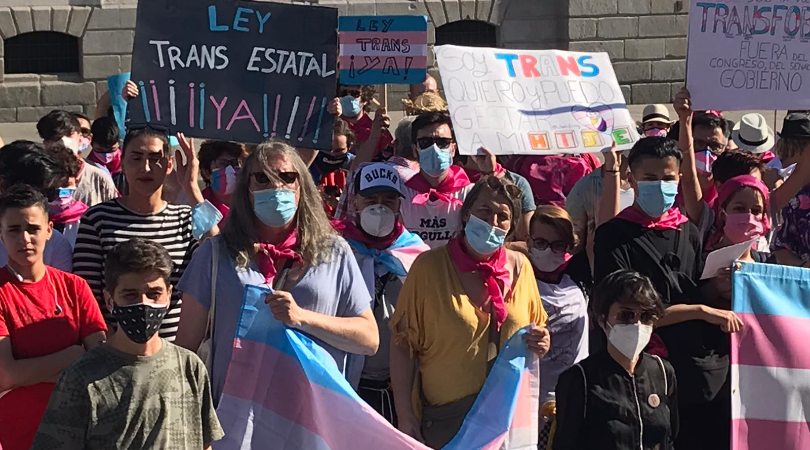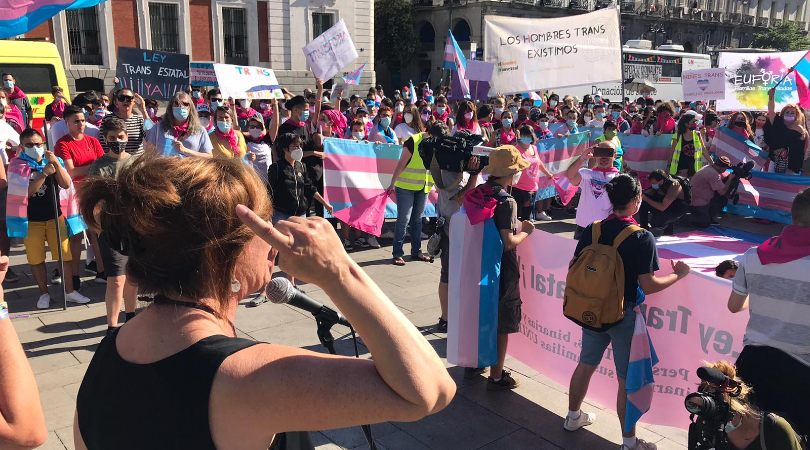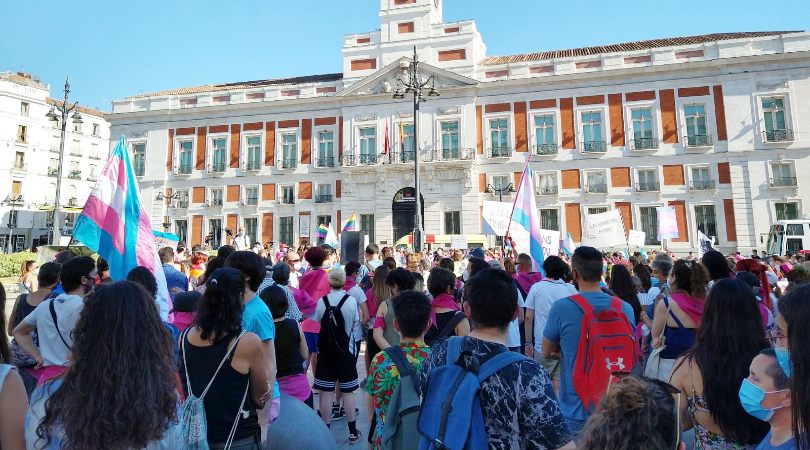
Des collectifs espagnols de personnes trans et de leurs familles commencent une grève de la faim
Les désaccords entre le PSOE et l’UP, partis qui composent le gouvernement espagnol, bloquent la «Ley Trans», conduisant la communauté trans dans une impasse.
Source: Federación Plataforma Trans![]()
![]()
![]()
![]()
![]()
Les groupes trans appellent les groupes politiques, qui ont facilité la composition de ce gouvernement de coalition grâce à leurs votes, à enregistrer la loi au Congrès afin qu’elle puisse être débattue.
Les programmes électoraux du PSOE et de l’UP s’engageaient à présenter une loi intégrale pour reconnaître les droits des personnes trans, il n’est donc pas surprenant que cette loi ait été l’un des points qui facilitait l’Accord programmatique de gouvernement. C’est ainsi que le Président Pedro Sánchez a présenté ce point lors du débat de son investiture au Congrès des députés.
Ces dernières années, l’Espagne a connu une ouverture sans précédent au collectif trans, en grande partie en raison de l’émergence d’associations trans spécifiques, au-delà des organisations LGBTI généralistes, et aussi de l’émergence d’associations de familles représentant les enfants et les jeunes trans, qui ont fait un excellent travail de sensibilisation et d’information.
Le travail des collectifs a été essentiel pour que plus de soixante mille personnes participent à une consultation publique menée par le Ministère de l’égalité, demandant la pertinence de légiférer pour la pleine égalité des personnes trans, et que 96% des personnes consultées se prononcent favorables à la Loi trans. Il a également influencé les résultats de la dernière enquête Eurobaromètre, publiée par la Commission européenne, concernant les droits et l’acceptation sociale des personnes LGTBI, où l’Espagne est entête, avec 83% de réponses favorables pour la reconnaissance juridique de l’identité des personnes trans. La population interrogée, est également en faveur de la reconnaissance juridique des personnes non binaires.
En juillet 2020, une manifestation de masse à la Puerta del Sol de Madrid a démontré le mécontentement du collectif trans face aux retards injustifiables dans l’enregistrement dans le projet de loi d’un texte déjà travaillé par les collectifs et les partis politiques. Après des mois de réunions au ministère de l’Egalité, dans le but d’élaborer un nouveau texte, le partenaire majoritaire du gouvernement, représentée par la vice-présidente, Carmen Calvo, qui maintient des positions transphobes, empêche le texte de loi de commencer sa procédure en Conseil des ministres, bloquant à nouveau la possibilité que les personnes trans voient leurs droits définitivement reconnus.
Cette situation a conduit au désespoir des personnes trans et de leurs familles, qui voient leurs revendications légitimes utilisées comme un élément de confrontation par leurs représentants. C’est pourquoi iels/ils/elles ont décidé d’appeler à une grève de la faim illimitée impliquant une centaine de personnes, dont des militants, des mères et des proches de personnes trans et même des alliés du collectif. Ils espèrent que cette action déclenche le retour au travail au service des citoyens des politiques, que cette loi soit inscrite à l’agenda parlementaire, quelle soit débattue et que le parlement vote favorablement un texte reconnaissant le droit à la reconnaissance légale de l’identité librement manifestée, y compris les personnes non binaires, les mineurs et les migrants. Cette loi doit garantir la dépathologisation des personnes trans et qui garantisse leurs droits tels que les soins de santé, l’éducation ou le travail.

